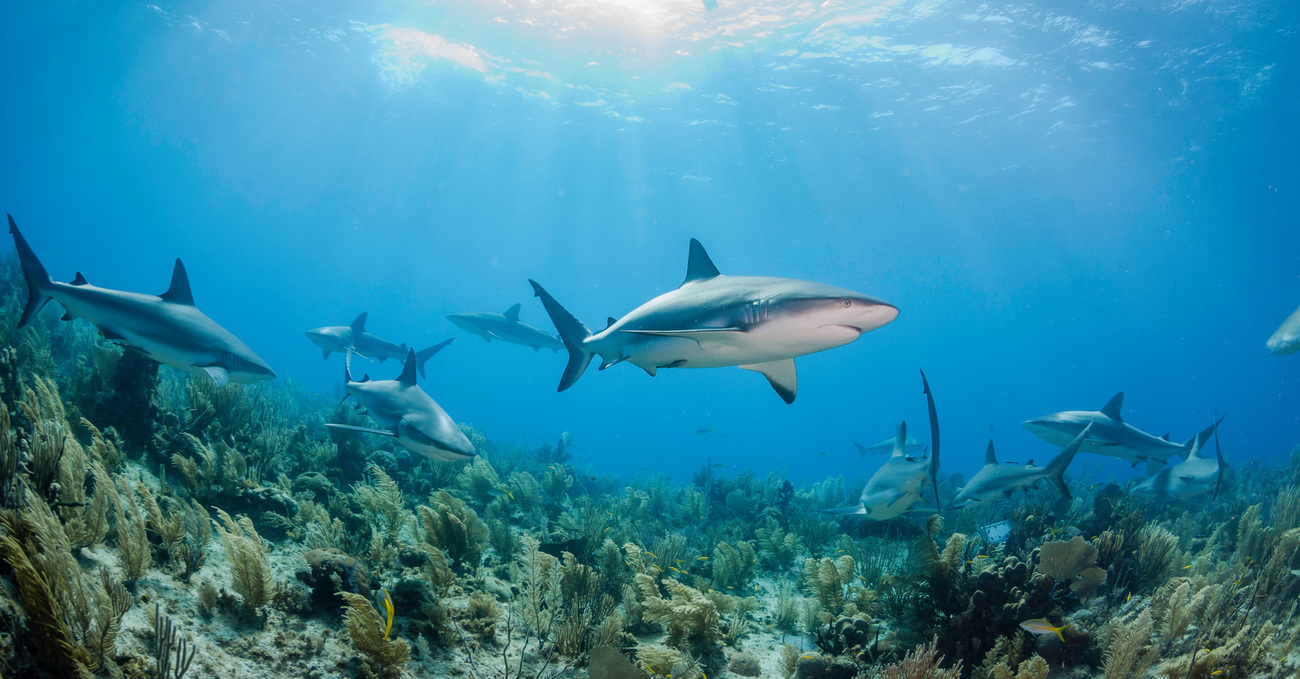Blog
What is Earth Day?
Read more
Global leaders have the chance to make history in November and turn the tide for sharks. This month, the 19th meeting of the Conference of the Parties to the Convention on the International Trade in Endangered Species of Wild Fauna and Flora (CITES) will take place in Panama City, Panama. In response to the alarming decline in global shark populations, countries from around the world will vote on a groundbreaking effort to control the unsustainable global trade in shark fins, which threatens to push these ecologically important predators to extinction.
The Government of Panama is leading a proposal that CITES regulate the trade in all requiem sharks—a family that includes the endangered gray reef shark, beloved by scuba divers throughout the world, as well as the dusky shark, which are near the edge of extinction due to overfishing and the fin trade.
Two additional proposals address securing similar protections for small hammerhead sharks and for guitarfish, the flat-bodied relatives of sharks.
Panama is working to obtain these protections for sharks in partnership with 40 countries, including the Dominican Republic, Ecuador, Colombia, El Salvador, the Seychelles, the Maldives, Bangladesh, Sri Lanka, Senegal, Gabon, Israel, the United Kingdom, Syria, and the European Union and its 27 Member States
These three proposals would place nearly all shark species traded for their fins under CITES oversight and controls, up from only 25% today:
Evidence supports the urgency of this action. Extinction threatens 37% of all sharks (and closely related rays) and 70% of species that are traded for their fins. Sharks and rays are the second most threatened vertebrate group on the planet after amphibians. Many requiem sharks are key predators on the world’s coral reefs, but recent global surveys indicate that reef sharks are functionally extinct on 20% of reefs, jeopardizing the health of ecosystems already devastated by climate change.
If adopted, these listings would change the face of shark conservation, leading to proper protections and sustainable management for largely overlooked species. It would give law enforcers, border agents, regulators and legislators clear guidance and tools to regulate the trade in shark fins.
Panama and its partner governments are offering a clear pathway to ensuring the survival of these species. Based on the available science, we urge other governments to agree and secure the long overdue protection for sharks these listings will bring.
The CITES Conference of the Parties will negotiate these shark protections at its meeting held November 14–25 in Panama City, Panama. This meeting is the fourth of the Conference of the Parties to CITES to be held in Central and South America and the Caribbean since CITES came into force on 1 July 1975, the first in Central America since 1979, and the first held in the broader region since 2002.
Every problem has a solution, every solution needs support.
The problems we face are urgent, complicated, and resistant to change. Real solutions demand creativity, hard work and involvement from people like you.
Unfortunately, the browser you use is outdated and does not allow you to display the site correctly. Please install any of the modern browsers, for example:
Google Chrome Firefox Safari